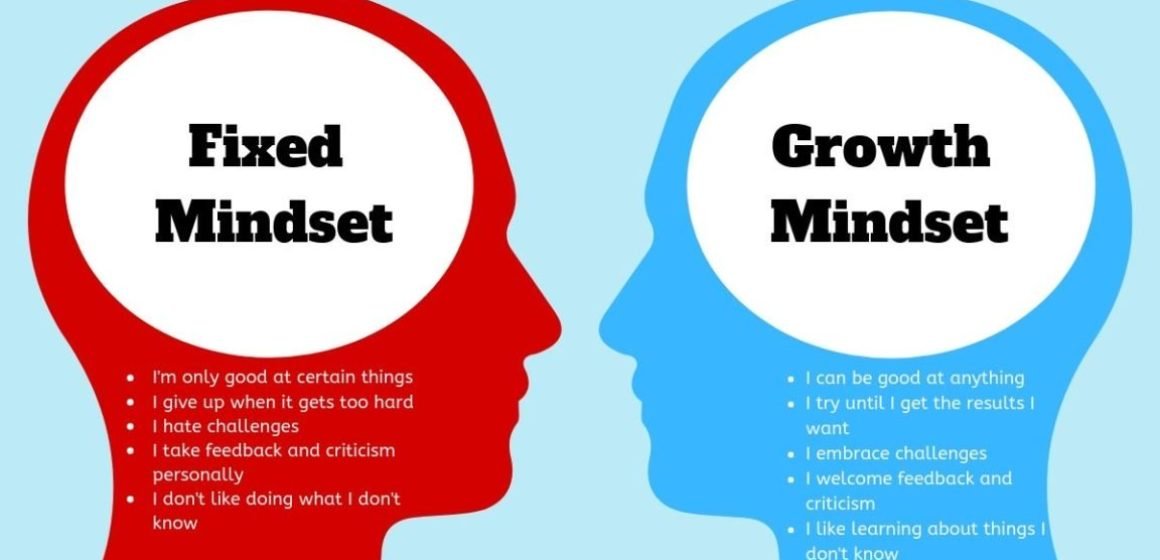Tips on How to Develop a Growth Mindset
Changing one’s mindset from a “fixed” perspective to a “growth mindset” may seem daunting, but by taking baby steps, anyone who wants to can build a “growth mindset.” Here’s how:
1. Acknowledge and embrace imperfection
Acknowledge imperfection in self and others, as it is the spice that makes us individuals. We all have our flaws, peculiarities, and weirdness—our imperfections. Like the small black mole on Marilyn Monroe’s face, our imperfections make us unique.
2. Face your challenges bravely.
If you find yourself terrified in the face of a serious challenge, stop and reframe the situation in your mind. Consider your challenge as an “opportunity,” thus slightly shifting your perspective to make it easier for you to engage. Each challenge or opportunity invites us into a new experience that is a sort of adventure.
Try different tactics to coach yourself about how to explore a new path, or how to develop a new skill, or how to interact with a new group of people, or to navigate through new circumstances. As an adventure, fear is an acceptable feeling. You press forward anyway because it’s exciting and new. If you take this same attitude with a crisis at work or whatever the challenge, you can discover abilities you didn’t know you even possessed.
3. Pay attention to your words and thoughts.
Start to pay attention to the words you speak, even the words in your mind. If your words are low or dark, the results may be also. So watch yourself. Listen to what you are saying and thinking. Censor yourself and become your own guide.
Replace negative thoughts with more positive ones to build a growth mindset. Replace judgment with acceptance, hate with compassion. If you are disrespecting yourself or lowering your ethical standards, the outcome of your decisions and their consequences will reflect that. Intend to think higher thoughts and hold yourself to it.
4. Stop seeking approval from others.
Approval from others can often prevent a growth mindset. Cultivate self-acceptance and self-approval. Learn to trust yourself. You are the only person who will always be there for you in your life so you are the only one you need to impress.
5. Take a step deeper into authenticity.
Pretending to be someone who you are not disrespects who you really are. It makes you a fake. It diminishes what you have to offer. Becoming truly authentic is a process that takes time and a lot of inner work. Once you do, you’ll likely be more driven to pursue your true goals, which puts you in a growth mindset.
6. Cultivate a sense of purpose.
Does your life feel like it is purpose-driven? If yes, define for yourself what that purpose encompasses. If you are drawing a blank, ask that your life’s purpose become clear to you. Meditate or contemplate on “purpose” and see what tidbits come through until you feel like you know the essence of your purpose, or perhaps part of it. Then pursue it—that’s what’ll help you build a growth mindset.
7. Redefine “genius.”
We all have strengths and weaknesses. Explore and appreciate your strengths, and work to improve your weaknesses. This effort can help you build a growth mindset.
8. Turn criticism around until you find its gift.
The purpose of criticism is to make things better. Someone else can see what you are doing from a slightly different perspective than you, and may have some valuable suggestions for you. If you open up to hearing suggestions, you can more easily develop your growth mindset.
9. Learn from the mistakes of others.
If you can learn from the mistakes of others, then you may be able to make fewer mistakes. This can sometimes calm the fear of trying new things, a key aspect of building a growth mindset.
10. “Not yet” is OK.
When struggling with a task, remind yourself that you just haven’t mastered it “yet.” If you stick with it, time and practice will lead to improvement.
11. Take risks in the company of others.
Try not to take yourself too seriously. Be willing to make mistakes in front of others, because if you’re growing, this is bound to happen. And making mistakes in front of others will usually get easier with practice.
12. Be realistic.
It takes time, sometimes lots of time, to learn a new skill, like learning a new language or learning to play an instrument or learning how to become a good lawyer. Keeping this in mind can help with a growth mindset.
13. Speed is not important.
When you have a growth mindset, the end results are less of a focus. Instead, you fully engage and put effort into the process, no matter how long it takes. Incidentally, focusing on the process often also improves results, because you did put a lot of effort in along the way.
14. Own your attitude.
If you value having a growth mindset, then take the time and make the effort to develop it. Persist and opportunities will come. Cultivate resilience along the way. You are remolding your mind and that’s a pretty cool thing.
For this and much more Information relating to employability skills, employment opportunities, career advancement and entrepreneurship development; Join our Telegram and WhatsApp groups, and also follow us on Twitter and Facebook.
Culled from: Psychology Today.




